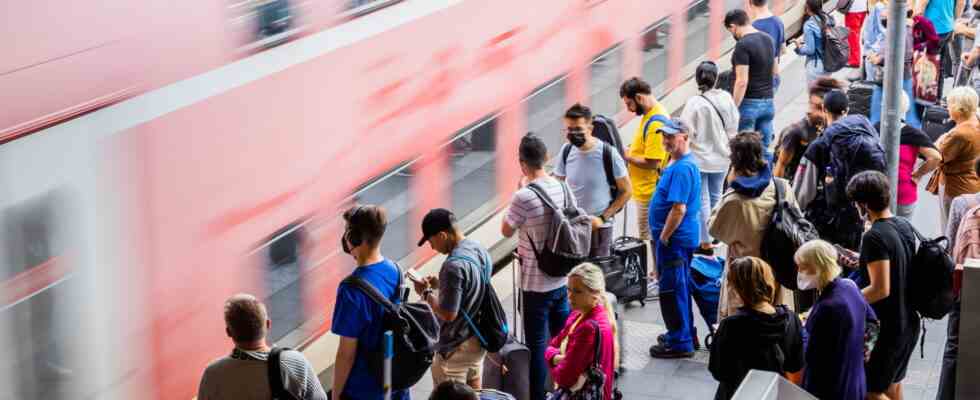Status: 28.12.2022 9:12 a.m
With a nationwide flat rate, buses and trains are to become more attractive. The 49-euro ticket is coming, when exactly is still unclear. And that’s not the only problem. Clear the way for the traffic turnaround? Rather not.
The “Germany ticket” will come now, said the Federal Chancellor at the beginning of December. Olaf Scholz and the prime ministers had just ended the month-long dispute over money between the federal and state governments, paving the way. In the future, citizens should be able to travel across the country for 49 euros – with a kind of flat rate for local and regional transport. The ticket should be bookable digitally and can be canceled monthly. That’s the promise of politicians. It was originally supposed to start in early 2023. Now April 1st is under discussion.
At the turn of the year, however, rail passengers experience what they always experience at the turn of the year: numerous transport associations increase prices. According to the dpa news agency, ticket prices in Germany will increase by between 1.4 and 8.8 percent.
Waiting for the 49 euro ticket
Fare increases have become a ritual. Only the reasons are different this year. The high energy prices are cited as one reason why tickets are becoming more expensive in many places. Another: the 49-euro ticket of all things. According to the Association of German Transport Companies, many customers are currently doing without a public transport subscription and are waiting for a flat-rate ticket. That leads to less income.
Various transport companies have been warning for months that the 49-euro ticket could have a negative impact on bus and train services. Especially far away from metropolitan areas.
Less money for investments?
And so the bosses of various transport companies are currently speaking up almost every day to draw attention to their situation. One of them is Guido Stilling, who is responsible for public transport in Krefeld. He says he needs to invest in the existing offering, but he needs money to do that. A cheap ticket, meaning the 49-euro ticket, could reduce the investment pot available. In the worst case, this could mean that the existing offer would have to be thinned out.
It would be a setback for the traffic turnaround defined as a goal by the federal government. In the coalition agreement between the SPD, the Greens and the FDP, it is agreed that the number of passengers should be increased significantly. But that costs – and the federal and state governments are fighting over the money.
It has been agreed that the federal and state governments will share the cost of the 49-euro ticket. Both sides have pledged to provide 1.5 billion euros each. In addition, the federal government has pledged one billion euros to expand local transport.
Does the ticket fail?
But even after the agreement, skeptics keep speaking out. The Association of Towns and Municipalities even warns of failure. Federal Transport Minister Volker Wissing made no secret of his impatience, he is progressing far too slowly. The countries would have to deliver now. He’ll put the pressure on now.
The transport associations are under pressure. They now have to convert their systems and inform customers about the new offer. In addition to the financial worries about the increased energy prices, there is now also the uncertainty about the 49-euro ticket. In addition, there is a lack of personnel in the mobility sector, and in some cases even a functioning vehicle fleet. The announcement of the “Germany ticket”, as happened at the beginning of December, is by no means the end. Many points still have to be set so that the traffic turnaround can really start.

